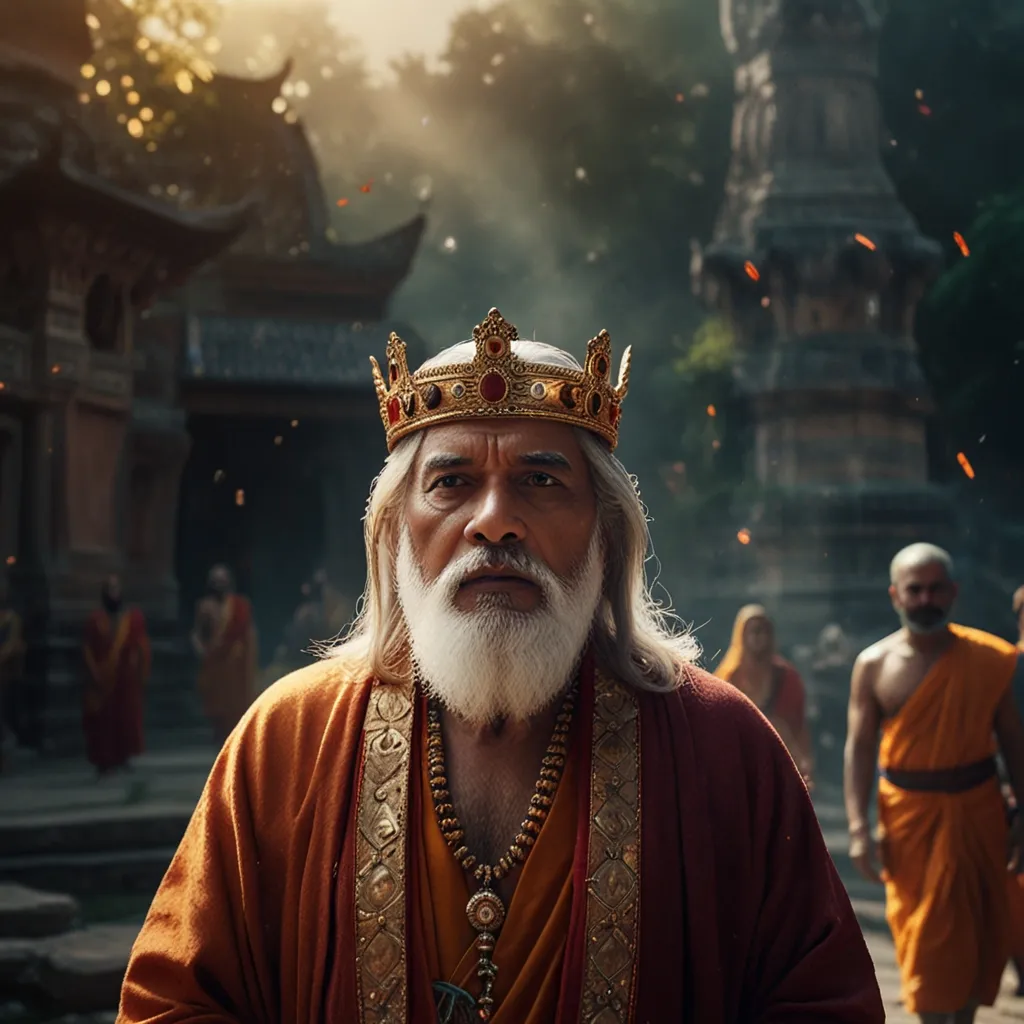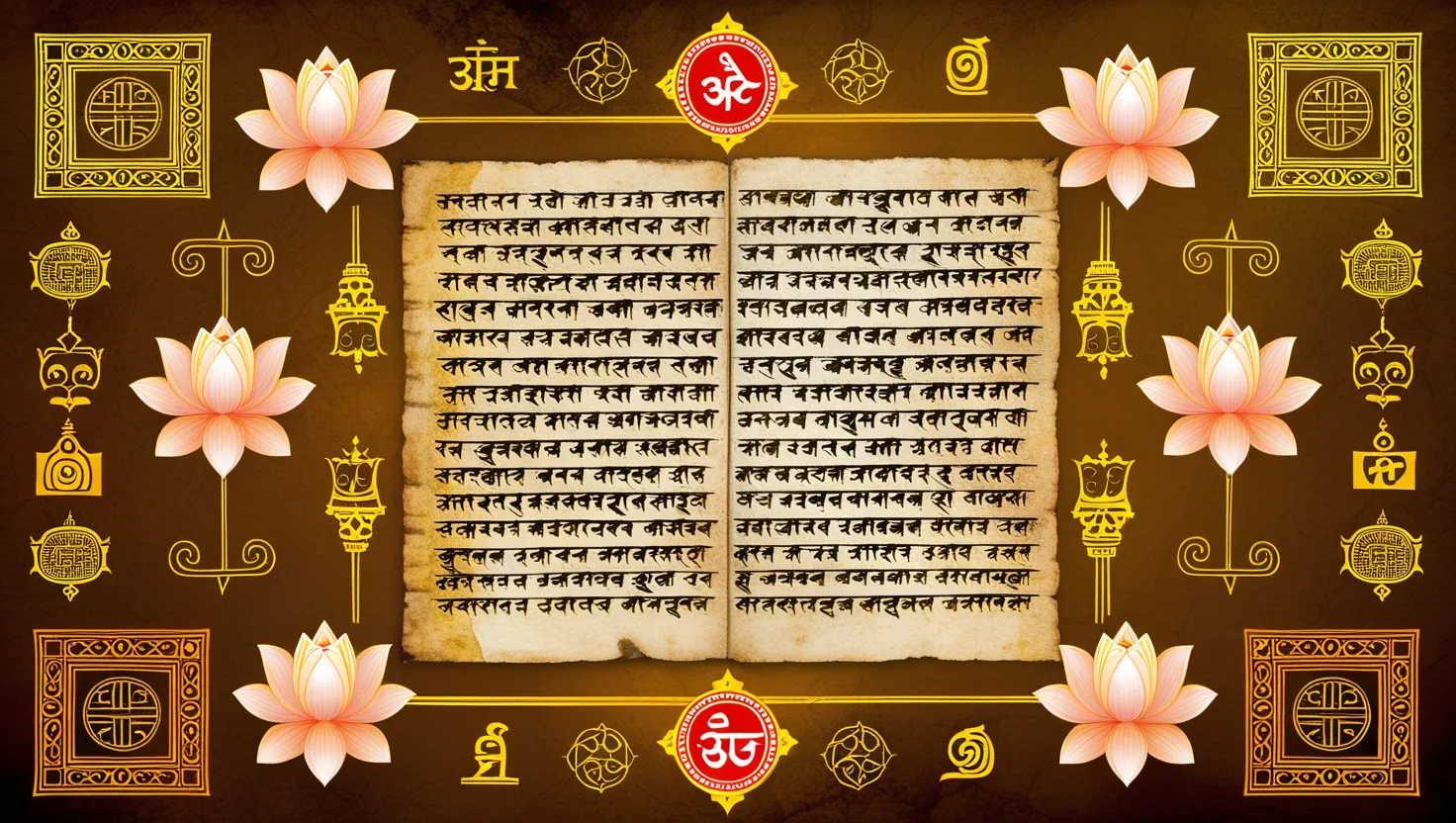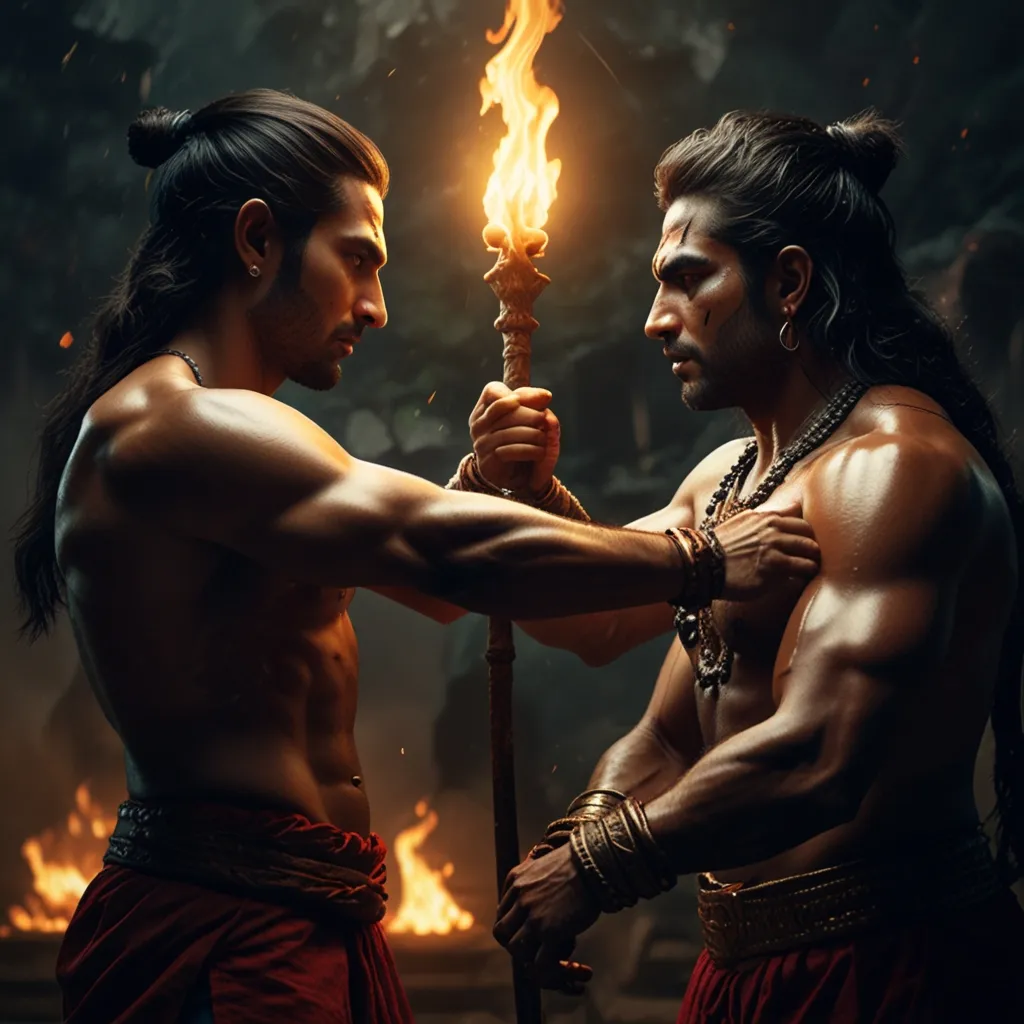In the ancient city of Ayodhya, there was a king named Harishchandra who was famous for his commitment to truth and honesty. Loved by everyone in his kingdom, his reign was marked by wisdom, compassion, and prosperity. Harishchandra’s tale is a powerful reminder of how integrity can shape not just a person’s life but an entire kingdom.
One day, a powerful and wise sage named Vishvamitra decided to put Harishchandra’s resolve to the test. Known for his magical prowess and ability to twist the fates of rulers, Vishvamitra approached Harishchandra with a hefty demand. He asked the king to hand over his entire kingdom as a gift. True to his principles, Harishchandra agreed without a hint of hesitation, relinquishing his kingdom and leaving himself and his family with nothing.
But Vishvamitra wasn’t quite done yet. He pushed further, asking Harishchandra to sell his wife Shaivya and their young son Rohitashva into slavery. Although heartbroken, Harishchandra didn’t waver. With a heavy heart, he sold his family to a Brahmin who promptly took them away. As for the king, he became a crematorium attendant in a far-off land, embracing a life of hardship.
Despite all these challenges, Harishchandra’s commitment to truth remained as strong as ever. He diligently performed his duties as a crematorium worker, never once compromising on his principles. His wife Shaivya faced her own set of difficulties. Tragedy struck when their son Rohitashva passed away, and Shaivya was asked to pay a tax to cremate his body. Desperate and with nothing left but the saree she wore, she was about to offer it when the gods appeared.
Unbeknownst to her, the crematorium attendant was actually Yama, the god of death. Revealing their divine identities, the gods brought Rohitashva back to life and lauded Harishchandra’s unwavering honesty. They disclosed that this torturous ordeal was a test of his character and offered him a place in heaven. Harishchandra, however, declined, unwilling to leave his subjects behind. Touched by his selflessness, the gods decided to bring all his subjects to heaven as well.
The legend of Harishchandra became a beacon of inspiration, exemplifying a life lived with utmost integrity and honesty. His commitment to truth has made him a legendary figure in Indian mythology, inspiring countless people to uphold these values. Harishchandra’s journey is a shining example that staying true to one’s principles, even in the grimmest times, can lead to ultimate victory.
In today’s world, where truth often gets sidelined for personal gain, Harishchandra’s story remains a bright light of hope and guidance. It isn’t just a myth but a guiding principle for those seeking to live a life marked by virtue and honesty. Harishchandra’s impeccable selflessness, giving up everything he had—his kingdom, his family, and even his dignity—to keep his word, speaks volumes. This earned him the highest respect and admiration, even from the gods themselves.
Harishchandra’s tale has transcended generations, inspiring various adaptations in literature, films, and plays. The first full-length feature film in India, “Raja Harishchandra,” was based on his life and marked a significant milestone in Indian cinema. The immense success of this film opened the door for numerous retellings, each with its unique flavor.
In popular culture, Harishchandra’s name has become synonymous with truthfulness. Referring to people who cling to the truth in difficult situations as “Raja Harishchandra” highlights the enduring impact of his story. It’s a colloquial nod to his legacy that still thrives in everyday conversation.
Another crucial aspect of Harishchandra’s story is the emphasis on family and community. Despite being separated from his family, he never lost hope and consistently prioritized his subjects’ needs over his own. His unwavering love and commitment to both his family and his people underline the significance of selflessness and sacrifice.
In essence, Harishchandra’s story is a testament to the human spirit’s strength and resilience. It shows that even in the face of intense adversity, staying true to oneself can lead to triumph. His enduring legacy continues to inspire people around the world to live a life marked by honesty, integrity, and selflessness.
The story of Harishchandra is timeless. It’s a vivid reminder that the greatest rewards one can achieve are truth and virtue. In celebrating his legacy, we’re reminded to hold fast to our principles, no matter the circumstances, for the path of integrity is always the most rewarding.






